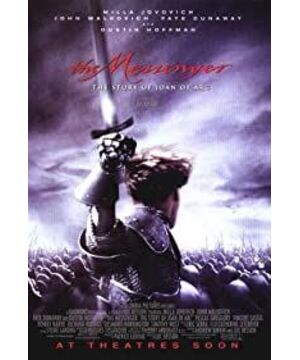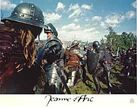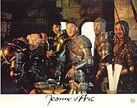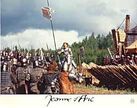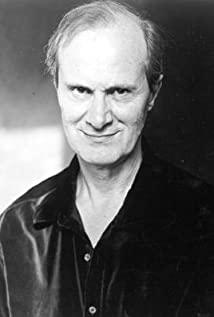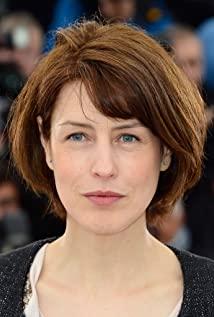Thinking about how ignorant I am of history, I always thought Joan of Arc was a fictional being. It turns out that she really existed in European history, which is really a thing that makes me very blush (ps I think this will happen more in the future).
In fact, after reading it, I feel that whether it is a perspective or a narrative method, I think it's pretty ordinary, but the only two things that I like are: 1. The meaning of God (at least I think it is God) in Joan of Arc's final life, I think this movie mentions a high. People, tracing back to the source, can't escape the happy thoughts after all, it's just that some people see it clearly and others can't open it up. 2. For the character of Joan of Arc, there is no certain identity, some exaggerated "magic power" imposed from a political or religious perspective. The director believes that she is a person after all, an ordinary person with thoughts and feelings, anger, fear, joy and repentance. However, a 19-year-old girl, who ended the 100-year war between Britain and France, was burned to death as a "heretic" and a "witch", which is unbearable.
However, I don't like it. In it, the anger of Joan of Arc's actor, or the performance when he thought it was a miracle, made me feel very strange, and I couldn't tell what I didn't like. That's why I keep fast-forwarding.
In general, just take a look. . .
View more about The Messenger: The Story of Joan of Arc reviews


